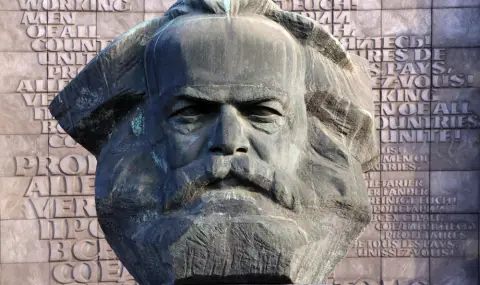The German philosophers Karl Marx and Friedrich Engels publish the “Communist Manifesto”. Their work is considered one of the most significant political philosophical works of the 19th century. The text of the manifesto has never been revised.
In the preface to the German edition of the Manifesto of 1883, Engels states that
the work is primarily Marx's work.
In the work, Marx makes statements about the Second Reich and the possibility of a possible war of nations. In his theses, the German philosopher proves through irrefutable arguments that the proletariat is in its essence more of a statement than a historical fact, notes dariknews.bg.
In the 1840s, the class struggle between the proletariat and the bourgeoisie came to the fore in the most developed countries of Europe. From 1845 to 1848, Engels and Marx lived in Brussels and spent most of their time organizing German workers in the city. Shortly after their arrival, they connected and joined the illegal German Communist League. The Communist League was the successor to the old League of Justice, founded in 1837, but recently dissolved. It was an international society of proletarian revolutionaries with branches in various European cities and had contacts with the illegal conspiratorial organization of Louis Auguste Blanqui. Although many of the members were immigrants, some of the new collaborators were Belgians.
The Communist League commissioned Marx and Engels to write a pamphlet explaining the principles of communism. Thus was born the Communist Manifesto. It was first published on February 21, 1848.
It ended with the catchphrase: “Let the ruling classes tremble before the communist revolution. The proletariat has nothing to lose but its chains. They will win the world... proletarians of all countries, unite!”.
The program itself contains 10 points:
- Expropriation of landed property and use of the income from the land to cover state expenses;
- High progressive taxation;
- Abolition of the right of inheritance;
- Confiscation of the property of all emigrants and rebels;
- Centralization of credit in the hands of the state through a national bank with state capital and an exclusive monopoly;
- Centralization of all means of transport in the hands of the state;
- Increase in the number of state factories, tools of production, clearing and improvements of the land on a general plan;
- Equal labor obligations for all, establishment of industrial armies, especially for agriculture;
- Unification of agriculture with industry, assistance in the gradual elimination of the differences between town and country;
- Public and free education for all children. Abolition of child labor in factories in its modern form.
After Marx's death, Engels devoted much of his time to completing Marx's edition of “Das Kapital”.
